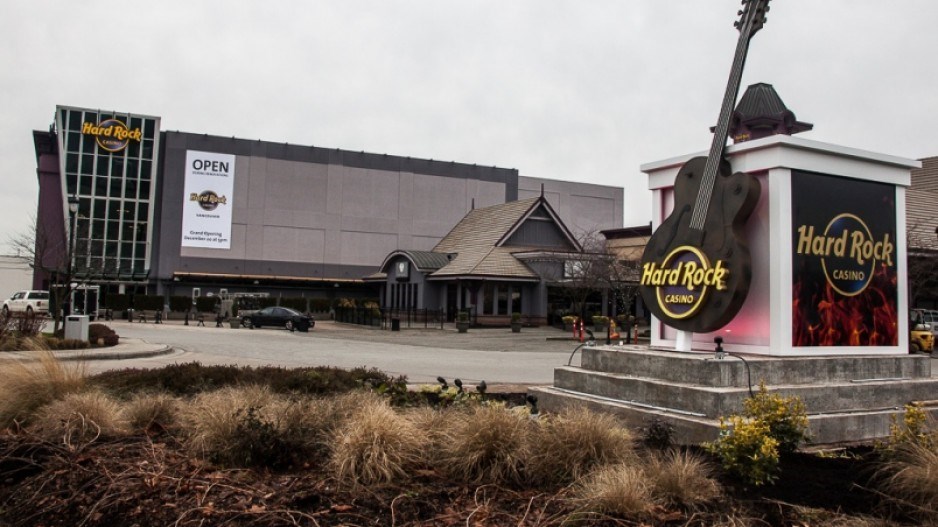Surveillance video that may shed light on an alleged fight at Coquitlam's Hard Rock Casino four years ago can be produced but with certain conditions attached, the BC Supreme Court has ruled.
The case stems from an altercation on Sept. 13, 2019, during which a woman playing a slot machine was knocked off her stool and onto the floor by someone involved in a fight.
The fight was captured by surveillance cameras, and casino staff investigated and prepared an incident report.
Plaintiff Gayla Lepard sought the release of video footage from the incident.
However, due to the sensitive nature of the surveillance video, including privacy issues, and the need to protect intelligence gathering efforts, BC Lottery Corp. (BCLC) places conditions on the use of the images for other than casino purposes.
"This information is highly confidential, and access to CRS [Casino Reporting System] is restricted even among casino employees," the court documents note.
Video footage could potentially "compromise or undermine the effectiveness of surveillance techniques and monitoring capabilities by revealing the location of cameras, camera angles, blind spots and other limitations of the surveillance systems."
In addition, identity of the security and surveillance staff could be compromised putting them at "heightened risk to their personal safety," the court was told.
BCLC is also required to protect staff's private information under the Freedom of Information and Protection of Privacy Act.
None of the parties opposed the release of video footage except defendant Michael Vieira, who took the position that the conditions sought by BCLC are onerous and unnecessary.
According to Vieira's counsel, requirements such as proper labelling, securing the documents and the need for written consent before releasing the video footage to anyone would "introduce unnecessary expense and exposes him to potential contempt liability for an inadvertent breach of the order."
However, in their decision, Master Hughes said BCLC's conditions for releasing the video footage are necessary to ensure the integrity of its surveillance systems and security practices and protect the personal information of individuals.
"These are both compelling reasons to impose protective conditions on the disclosure of the surveillance materials," Hughes wrote.
"While the conditions may be considered onerous, they are necessary and appropriate. I do not view the conditions as being unduly prejudicial to Mr. Vieira, and the conditions sought strike a balance between the disclosure necessary for this litigation and protection of the public interest and the interests of the individuals whose personal information is contained in the surveillance materials."
Hughes granted the order sought by Lepard to release the video footage, with BCLC conditions, and ordered Vieira, who was the only defendant in opposition, to pay costs.



